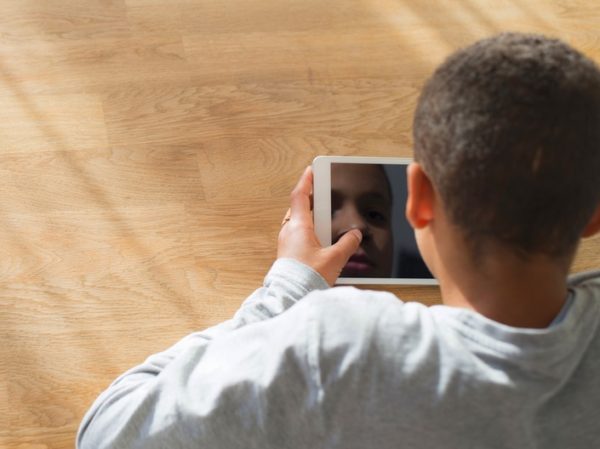A tech researcher shares pros and cons for using devices with autistic learners — and draws from her own experience
During the last few years, touch screen devices like the iPad have been a boon to special education. Apps such as Proloquo2Go can aid children with speech difficulties while a myriad of interactive games and activities engage and educate students with autism spectrum disorders, perhaps because they break learning down into small, digestible chunks.
There are plenty that would disagree with that assessment, however. As technology researcher Alexandra Samuel recently noted in the WSJ, some researchers contend that autistic children are “particularly prone to videogame addiction.” Others think that the structure inherent in gaming can reinforce the rigidity of autistic-type brains.
For Samuel, who is the parent of an Autistic ten-year-old, technology has been both useful and harmful in her own experience, and she refrains from drawing any stark conclusions. According to Samuel:
[T]here is no simple answer to the question of whether technology helps or harms autistic children, any more than there is an easy answer to whether technology is good or bad for society as a whole. To make technology a constructive influence, we need to get past talking about “screen time” as if it were a single thing, and start looking at the impact that specific kinds of screen time have on specific people and behaviors.
In particular, she has used technology in five different ways:
As downtime, to avoid sensory overload; as targeted therapy to teach mindful techniques and emotional intelligence; to help monitor behavior (although the particular apps she tried ultimately proved too engaging for her son); to promote special interests, such as coding; and for online socializing, given that it may be easier for autistic children to communicate and learn about social interaction in a controlled (online) environment.
All of the approaches, Samuel notes, require adults, such as parents and educators, to keep a close eye on their kids, not only to help manage behavior but also to help tease out hidden interests and to learn more about what draws them in.
Further reading:
Personal Technology and the Autistic Child: What One Family Has Learned
Experts pick the 21 best apps for autism
Kids and Teens with Autism Vulnerable to Video Game Addiction
- TC- What student choice and agency actually looks like - November 15, 2016
- What student choice and agency actually looks like - November 14, 2016
- App of the Week: Science sensor meets your smartphone - November 14, 2016


